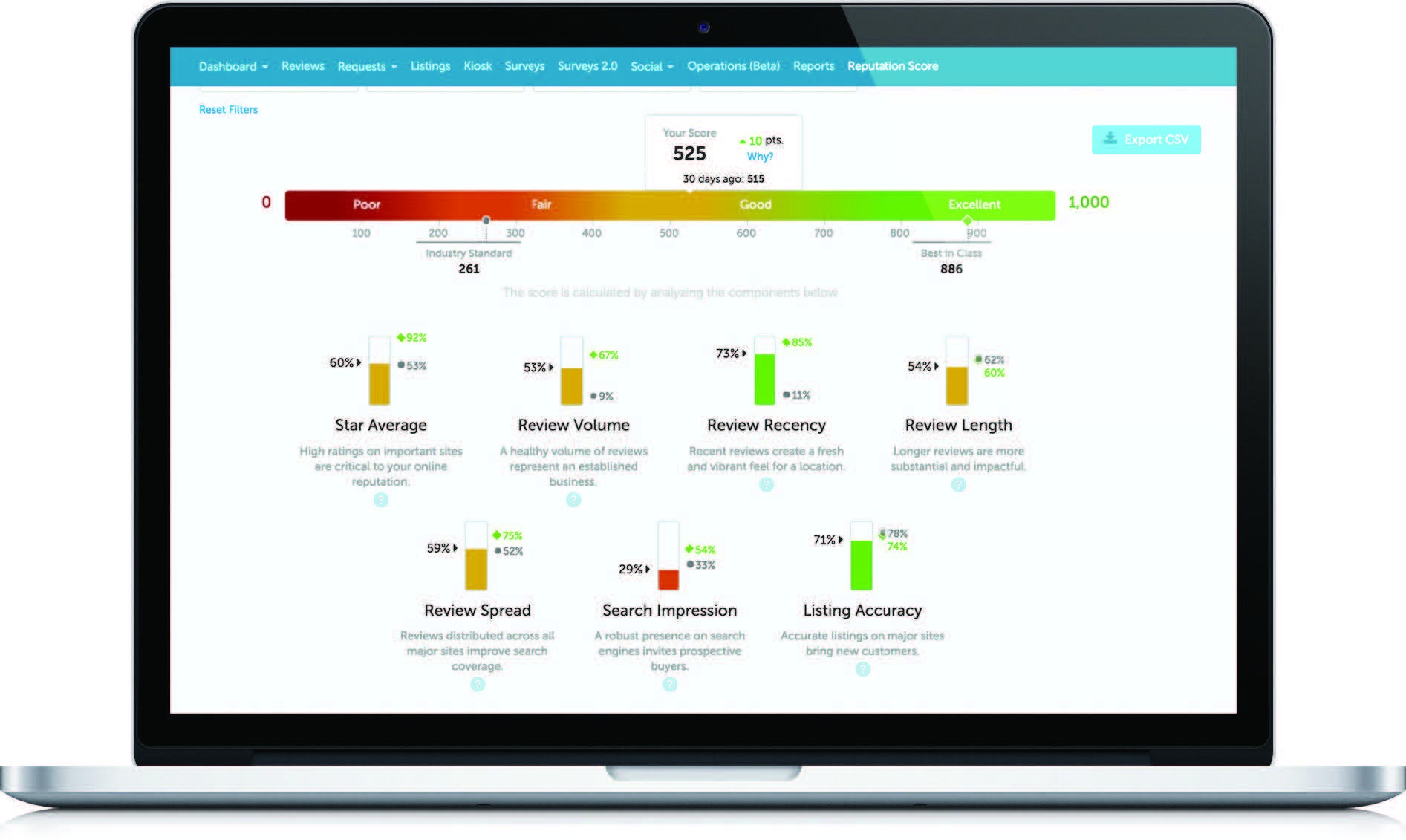How Reputation Does It: Reputation Score
Reputation Staff Writer

Introduction
In the Online Reputation Management (ORM) industry, standardized scoring is becoming increasingly common as a mechanism for benchmarking your company’s online reputation.
Knowing your reputation score can be a game changer for your business — helping you make sure you’re excelling in the key areas you need to maximize your customer appeal. But too often companies put together scoring criteria that are incomplete or improperly weighted.
A skewed or incomplete picture of your company’s online reputation isn’t going to help you make sure your business is on the right track. That’s where Reputation comes in.
Reputation Does It Differently
Virtually every reputation management company will tell you they can evaluate your customer sentiment and online reputation and provide a score to measure how your business is doing.
Most companies calculate your reputation score based on brand perception, social mentions, and market factors. That’s one way of looking at it, but it doesn’t tell you the whole story.
Reputation goes beyond market cap and PR mentions to analyze every aspect of your company’s online presence, from star ratings to review spread and volume to your visibility in search results. Our proprietary scoring formula covers the full spectrum of relevant online reputation factors to give you a comprehensive and thorough picture of the health of your company’s online reputation.
Moreover, Reputation is the only company that gives you the tools and data to understand just how your score is calculated and provides you industry-standard and best-in-class comparisons for every reputation factor.
How We Do It
Unlike other companies that are secretive and evasive when pressed for details about how their scores are calculated, we’re more than happy to tell you just what goes into our industry-leading Reputation Score:
Star Ratings. The closer you are to a five-star rating, the better. A strong star rating demonstrates a commitment to customer service and will help drive customers to your locations.
Review Volume. This represents the total quantity of reviews — both positive and negative — that have been written about your business. Review volume has a big impact on locations’ search rankings, and on your reputation score.
 Review Spread. The spread refers to the total number of sites on which reviews are being posted — from Google and Facebook to dozens of industry-specific review sites. The broader the spread, the better.
Review Spread. The spread refers to the total number of sites on which reviews are being posted — from Google and Facebook to dozens of industry-specific review sites. The broader the spread, the better.
Review Recency. Recently published reviews convey that the business is requesting feedback from their customers and that their customers are active and engaged. Newer reviews also help drive up search rankings for locations.
Review Length. The length of your reviews indicates how invested your customers are in your business because it is a measure of how much time they were willing to spend giving feedback.
The longer and more detailed the review, the better, even if sometimes that review is focused on how you can improve rather than on praising existing service standards.
Search Impressions. This plays a role in how your business looks when customers search for your locations on Google or other search engines. The higher your business or location appears in the search results the easier it will be for consumers to find it.
Listing Accuracy. If your locations have accurate online information — such as the correct address, phone number, and hours of operation — then this will help potential customers easily find them. A customer can’t patronize a business he or she cannot find.
Reputation’s Online Reputation Management platform not only makes it easy to see your overall score but also lets you dive into each of these factors and see — at a glance — which ones you’re excelling in and which you need to improve.
Why You Should Care
A customer with a below average Reputation Score could have a great average star rating, but very low review volume and with most of the reviews written years ago. Without a granular breakdown of the factors used to calculate the Reputation Score, it can be hard to decide on the most productive next steps. We give our customers the detail they need to develop the most efficient plan to improve their online reputations.
The Reputation Score also goes beyond the data specific to your business and takes into account the local market and industry. This allows you to benchmark your business and see how it stacks up to the competition both overall and in each of the subcategories above.
Measuring your brand perception and market cap — the benchmarks many other reputation management companies rely on to calculate their scores — only scratches the surface of gauging how well your business’ reputation is truly doing.
If you’re interested in learning more about how to monitor and boost your Reputation Score, contact us for a Demo. We’ll be happy to show you.
